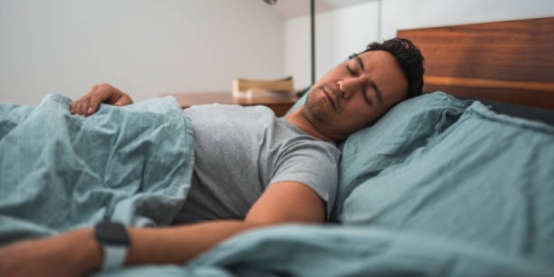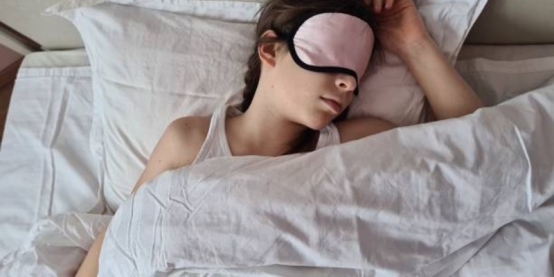Sleep Hygiene 101: Tips For Better Rest Tonight
A great night's sleep isn't a question of being tired so much as it is a question of powering brain function, emotional balance, and long-term health. And yet millions of individuals experience inadequate sleep without realising that habits within their daily routines are the cause.
That's where sleep hygiene comes in: the set of simple daily habits that improve how long and how soundly you sleep. Learning sleep hygiene is among the strongest non-medication methods for enhancing focus, energy, and mood.
What Is Sleep Hygiene (And Why It Matters)
Sleep hygiene refers to the routine and habits that culminate in consistent, high-quality sleep. Just as dental hygiene prevents cavities, sleep hygiene prevents restless nights. Disordered sleep hygiene will more often than not lead to tossing and turning, frequent awakening, or waking with fogginess.

Good sleep hygiene impacts nearly every aspect of health. Quality sleep stabilises metabolism, enhances immunity, improves concentration, and reduces the risk of chronic diseases. On the contrary, poor sleep results in irritability, poor concentration, and increased risks of obesity, cardiovascular disease, and diabetes, according to CDC studies.
A few indicators of poor sleep hygiene include:
Inability to fall or stay asleep
Unpredictable sleeping patterns
Daytime fatigue and brain fog
Excessive use of Caffeine to operate
How Much Sleep Do You Actually Need?
The appropriate amount of sleep varies based mostly on lifestyle and age.
Children (6–12 years): 9–12 hours
Teens (13–18 years): 8–10 hours
Adults: 7–9 hours
Older adults (65+): 7–8 hours. Yet quality is just as vital as quantity. Even if one sleeps for 8 hours, fragmented sleep reduces memory consolidation and repair. Chronic fatigue, moodiness, and lack of concentration are clear indications that current sleep is not serving the body's needs.
The Biology Of Good Sleep In Simple Terms
Two biological mechanisms are responsible for every good night's sleep: circadian rhythm and melatonin production.
The circadian rhythm is the body's internal clock that determines when a person is supposed to be sleepy or awake. It follows an approximate 24-hour cycle depending on exposure to natural light.
Melatonin is the hormone that rises at night and makes the body drowsy. Artificial light, specifically blue light from screens, has the potential to delay melatonin release and keep the brain stimulated.
Sleep also comes in cycles: light sleep, deep sleep, and REM sleep. Consolidated, uninterrupted cycles are what make you feel rested. When those cycles are disrupted continuously, the body and brain lose out on valuable repair functions. Being regular with sleep timings is crucial to sustaining this balance.
Basic Principles Of Good Sleep Hygiene
It does not require radical changes to enhance sleep. What is crucial is consistency and environment.
1. Consistency
Go to sleep and wake up at the same time every day, including weekends.
Avoid changing bedtime by more than 30 minutes.
2. Sleep-Conducive Environment
Keep the bedroom dark, quiet, and comfortably calm (between 65–68°F).
Purchase supportive bedding and blackout curtains if needed.
3. Pre-Sleep Routine
Gentle activities get the body ready for bedtime, such as reading, stretching, or listening to calming music.
4. Daily Habits
Limit Caffeine after late afternoon.
Daily exercise, but no intense late evening exercise.
Get yourself exposed to natural daylight to boost your circadian rhythm.

Practical Step-By-Step Tips For Better Sleep Tonight
For people who need something to act on right away, the following are science-backed tips:
Cut off screen time 1–2 hours before bedtime to reduce blue light interference.
Avoid stimulants like Caffeine, alcohol, or heavy meals three hours before bedtime.
Support relaxation with relaxing teas (e.g., chamomile), magnesium-containing foods, or Breathing exercises.
The 90-minute rule: Wake up at the end of a sleep cycle (in multiples of 90 minutes) rather than disrupting cycles abruptly.
Wind down with meditation or journaling rather than device scrolling.
Morning Habits That Enhance Night Sleep
The morning begins by laying the groundwork for the following night's sleep.
Morning sunlight exposure resets the circadian rhythm.
Exercise earlier in the day instead of late evening.
Caffeine cutoff time is ideally 6–8 hours before sleeping. These routines quietly keep the sleep-wake cycle in balance and prevent late-night wakefulness.
What To Avoid If You Want Quality Rest
Certain habits quietly get in the way of rest:
Scrolling through devices or watching stimulating TV before sleep is common.
Intense late-night workouts that stimulate adrenaline.
Stress-inducing activities like reading work mail or the news are part of everyday life.
Hidden disruptors such as alcohol, excessive sugar, or excessive hydration right before bed. Being aware of and ending these can make a huge difference in sleep quality.
Individualised Sleep Recommendations According To Various Lifestyles
For Students
Plan late-night studying in blocks with breaks, and avoid caffeine-heavy drinks close to bedtime.
For Parents
Use naps that coincide with children's sleeping times and create an environment that facilitates quicker sleep onset.
For Shift Workers
Schedule bright-light exposure according to work schedules and sleep in darkened rooms during the daytime.
For Frequent Travellers
Adjust to new time zones by changing sleep and light exposure 1–2 days before travel. Use short naps to help reduce jet lag.
Common Sleep Problems & What Hygiene Does
Trouble falling asleep: Wind-down routines, avoiding screens, and using relaxation aids are helpful.
Waking up in the middle of the night: Limit alcohol, keep the bedroom cold, and avoid overhydration.
Tossing and turning: Note consistent timing and avoiding stimulants.
Snoring, apnea, or restless legs: These may indicate medical problems that require more than just hygiene. According to the National Sleep Foundation, determining whether the issue is behavioural or medical doesn't delay obtaining real solutions.
When You Should Seek a Sleep Specialist
When good hygiene practices fail after weeks of attempts, you may require professional help. Red flags of insomnia, sleep apnea, or restless leg syndrome should not be ignored. Professional diagnosis ensures safe treatment and prevents complications down the road.

Quick Checklist: Daily Sleep Hygiene Guide
Morning:
Get bright light exposure.
Limit Caffeine to the early hours.
Day:
Exercise earlier.
Eat balanced meals.
Evening:
Reduce stimulants.
Start digital detox.
Bedtime:
Keep the room dark, calm, and quiet.
Follow the same winding-down routine nightly.
Healthy Sleep Habits Lead To Better Living
Improved sleep hygiene does not require revolution—just incremental, gradual change. Start with one or two adjustments, like earlier screen shutdown or a regular bedtime. These habits cumulate over time, leading to deeper, uninterrupted sleep and a healthier, more productive life. Healthier sleep gives rise to overall wellbeing, cognitive strength, and long-term energy.